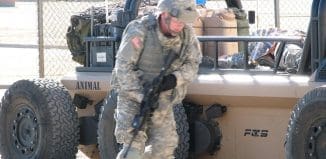The defense market goes east
This post is also available in:  עברית (Hebrew)
עברית (Hebrew)
 Asian powers are outpacing the United States to become the biggest spenders on defense by 2021 and are fuelling an “explosion” in the global arms trade, a study showed.
Asian powers are outpacing the United States to become the biggest spenders on defense by 2021 and are fuelling an “explosion” in the global arms trade, a study showed.
The global arms trade jumped by 30 percent to $73.5 billion between 2008-2012 in spite of the economic downturn, driven by surging exports from China and demand from countries like India, and is set to more than double by 2020, defense and security consultancy IHS Jane’s said and was reported by Reuters.
i-HLS Israel Homeland Security
“Budgets are shifting East and global arms trade is increasing competition. This is the biggest explosion in trade the world has ever seen,” said Paul Burton, a senior manager at IHS Jane’s whose study looked at 34,000 defense acquisition programmes.
The United States has accounted for the lion’s share of global defense spending over the past decade, but budget cuts in Washington, as it withdraws from countries such as Afghanistan, mean that it will account for just 30 percent by 2021 to fall behind Asia at 31 percent.
Military spending in the Asia Pacific region – which includes China, India and Indonesia – will rise 35 percent to $501 billion in the next eight years, compared to a 28 percent fall in U.S. spending to $472 billion over the same period, IHS Jane’s said.
“The big Western defense companies have no option – export or shrink – but this could be sowing the seed of their own demise; the opportunities in the East are a double-edged sword, fuelling a trend which threatens U.S. dominance of defence.” said Guy Anderson, senior principal analyst at IHS Jane’s.
China’s ramp-up in defense spending in recent years is worrying its neighbors such as Japan, with whom it is currently embroiled in a stand-off over a series of uninhabited islands, despite its repeated reassurances that there is nothing to fear.
Japan, as well as India and South Korea, are among countries being courted by weapon makers such as Lockheed Martin, Boeing and BAE Systems who want to sell them fighter jets and other equipment to make up for reduced spending in their Western home markets, but such deals tend to require investment in the buyers’s defense industries.
Israeli sources told I-HLS that many of the future deals in Asia will include systems that aer either made for homeland security or that are defined “dual Use”






























